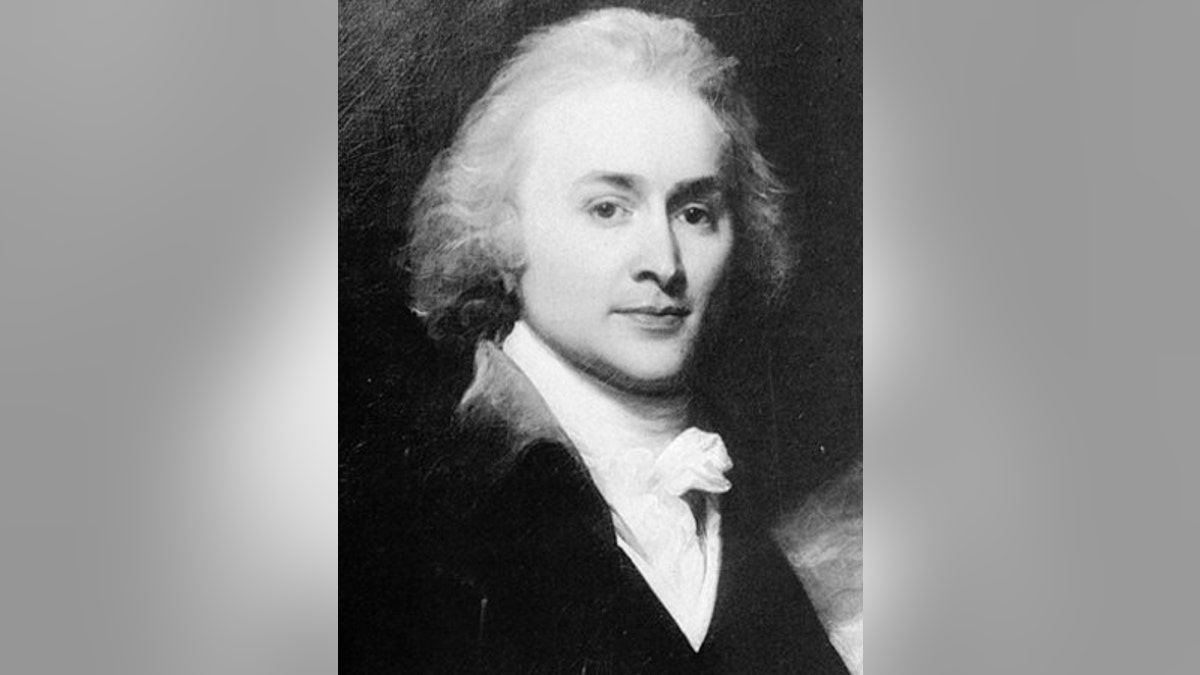
This undated file image shows a portrait painted by artist John Singleton Copley of John Quincy Adams. (AP)
BOSTON – It seems John Quincy Adams was way ahead of his time.
A high school student touring the sixth U.S. president's archives recently noticed his bite-sized diary entries looked a lot like tweets.
Starting Wednesday, history will meet modern technology as the Massachusetts Historical Society begins posting Adams' updates from 200 years ago on Twitter. The historical society will include a presidential tracker of sorts, linking maps to show Adam's progress on a diplomatic trek to Russia as U.S. minister.
The tweets will include mentions of his favorite reads, memorable meals, weather updates and the daily drama of months at sea.
His updates are concise enough to put Twitter experts to shame: "Thick fog. Scanty Wind. On George's Bank. Lat: 42-34. Read Massillon's Careme Sermons 2 & 3. Ladies are Sick." (This one, from Aug. 6, 1809, comes in at 109 characters, well under Twitter's 140-character limit.)
The Aug. 31 entry was even tighter, at only 91 characters: "Calm and light winds. Pleasant weather. Lat: 59-23. Long: 17-15. Cimon and Lucullus. Cards."
His 95-character line showed Aug. 15, to be more eventful: "Weather fine— wind scanty. Lat: 44-13. Long: 53-40. This afternoon I found the Caboose on fire."
Librarians and historians at the society say they hope to connect a new online generation with Adams by bringing his life into the 21st century. The group's Web site has digital copies of Adams' diaries that show his whimsical script.
Adams' Twitter-ready entries suggest the micro-blog phenomenon has century-old roots. But no one knows what the former president would think of his diaries being used as social networking fodder. Perhaps he'd be LOL (laughing out loud).
Society librarian Jeremy Dibbell said Adams didn't intend for his diaries to be published.
"When he's doing this it's not really for public consumption, although I think the Adamses kind of knew that what they were writing would be read for many years hence," said Dibbell, an assistant reference librarian co-coordinating the society's Twitter feed.
Robert Remini, an Adams biographer and historian of the U.S. House of Representatives, said such a public man would be pleased to know the online world was following his daily life two centuries later.
"I don't think he would mind that," Remini said. "It'll show what a dedicated person he was in working for the public good."
